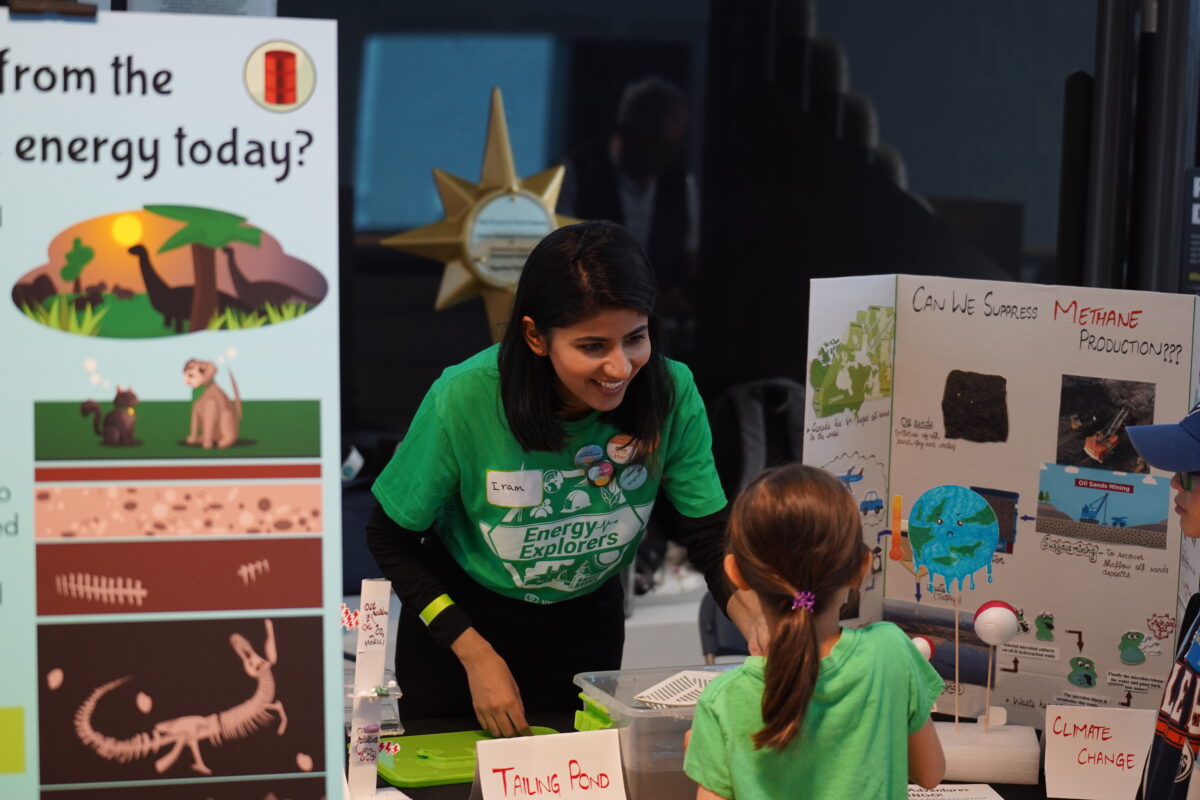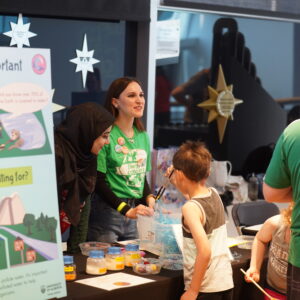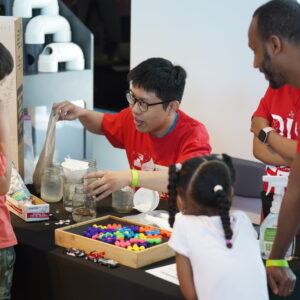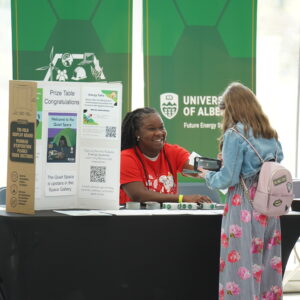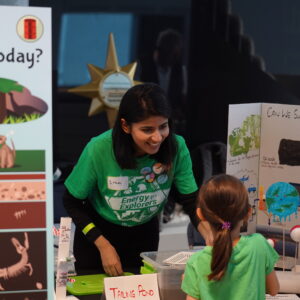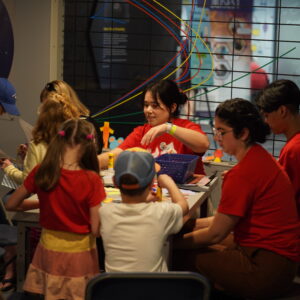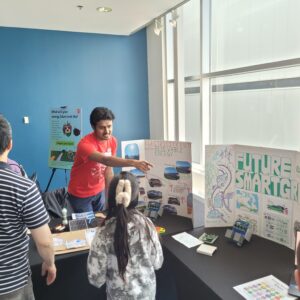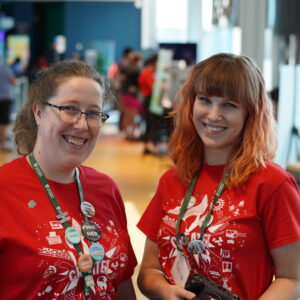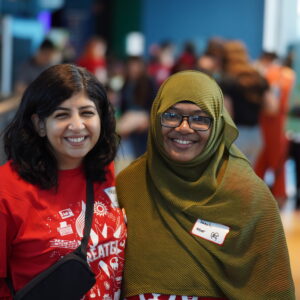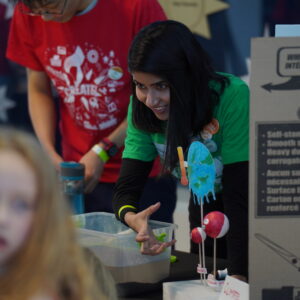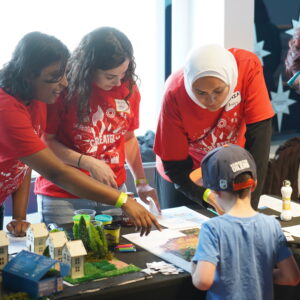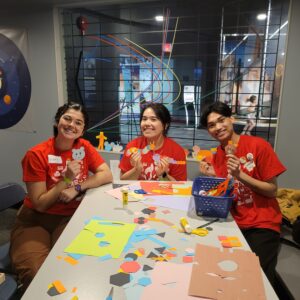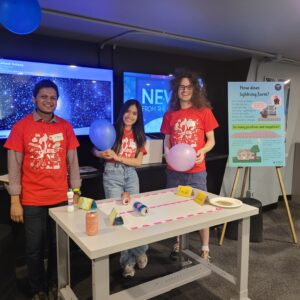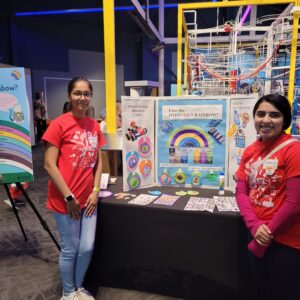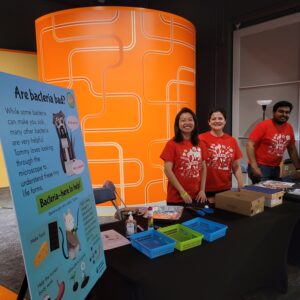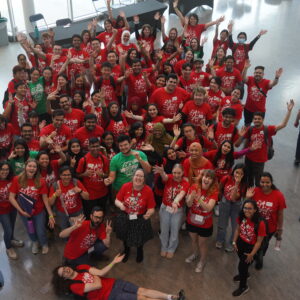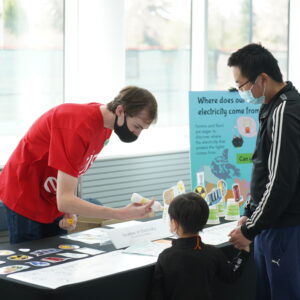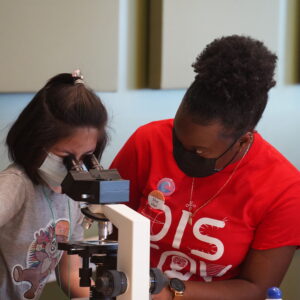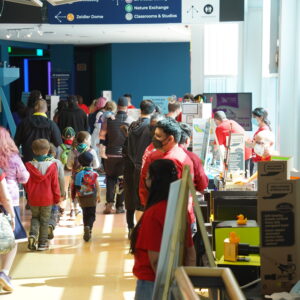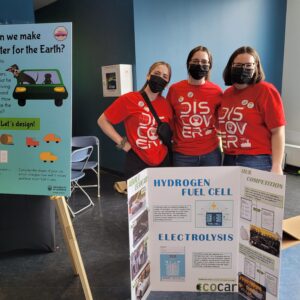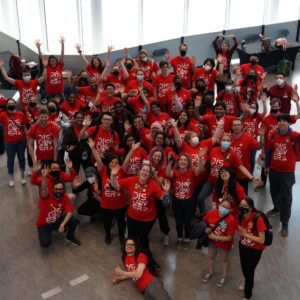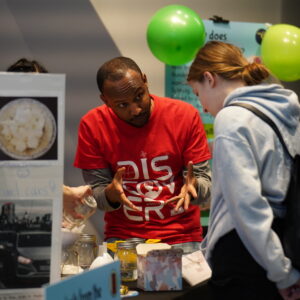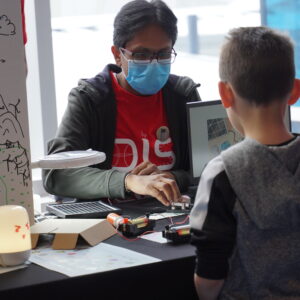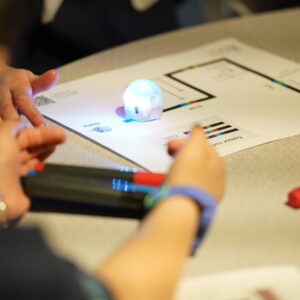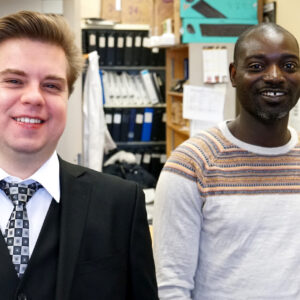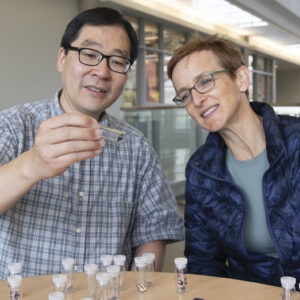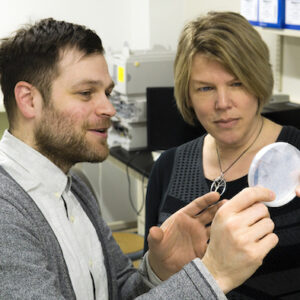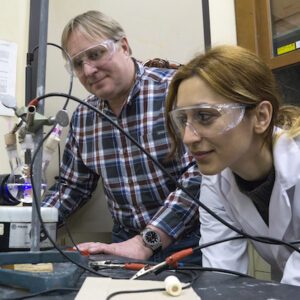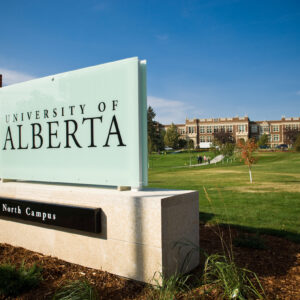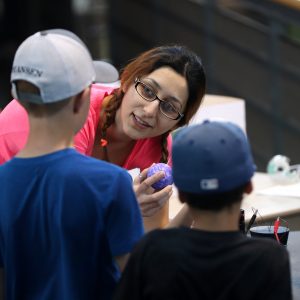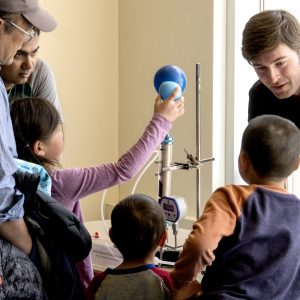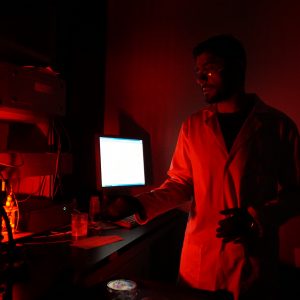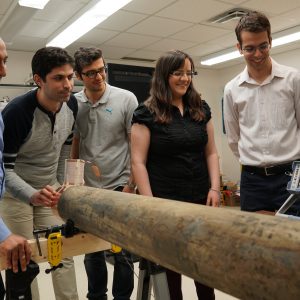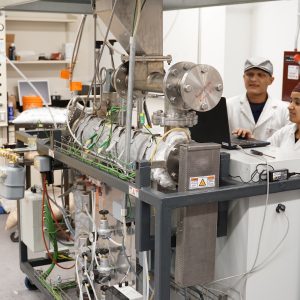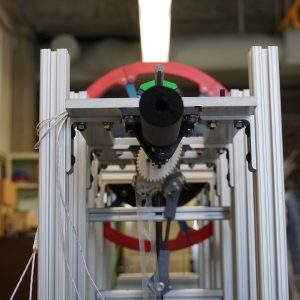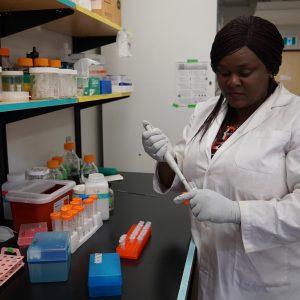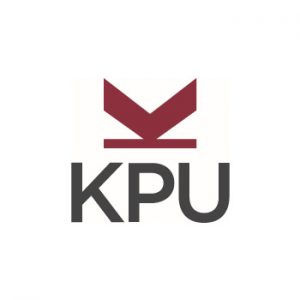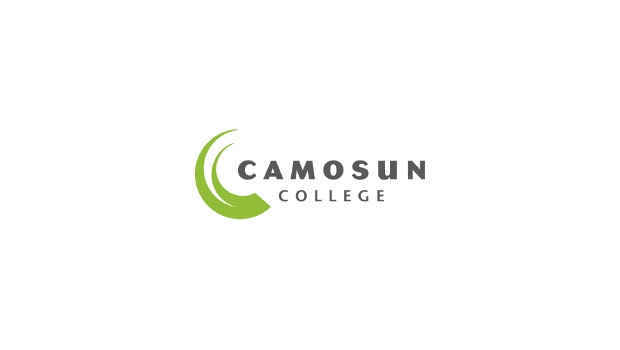
Are you ready for Science Rendezvous 2024? It is time to INNOVATE with us!
We are back on May 11th, 2024, with a new line-up of exciting events, activities, and demos!
Connect with Future Energy Systems on our social media, our Learning Page (full of resources of teachers, parents and kids) and our YouTube Channel.
Highlights
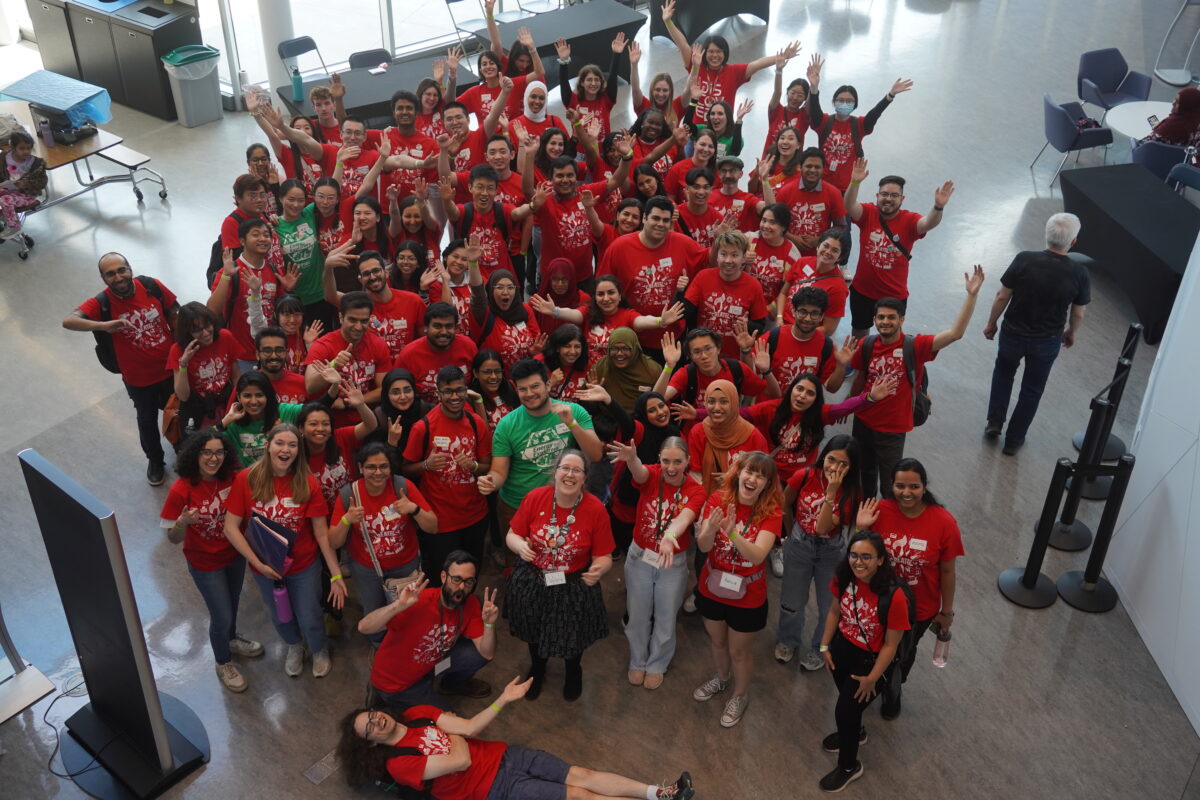
Welcome to Future Energy Systems' Science Rendezvous!!!
Energy! Climate change! The environment! Do you wonder how it all works? Our Energy Adventurers are ready to take you on a journey to explore energy! Spend the day with Remi, the cat, and Tommy, the dog, as they learn about our energy systems –– past, present, and future.
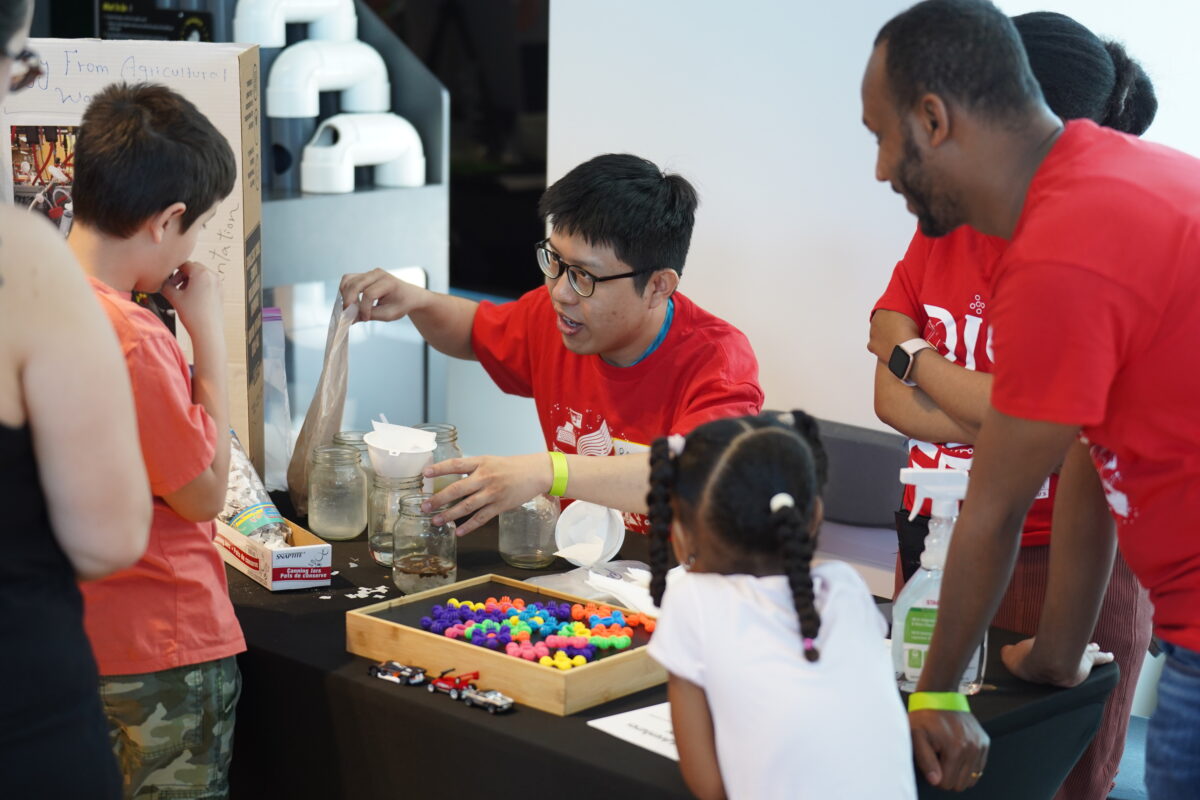
Explore the energy all around you!
Does your electricity come from the sun, wind, fossil fuels, or something else – find out in “Where Is My Electricity From?” Can you use a balloon to move items – find out in “Shocking Static Electricity.” What small changes can you make in your life to reduce your footprint – find out in “Sustainability Actions.” Find these booths at our Energy Adventure at TELUS World of Science – Edmonton.
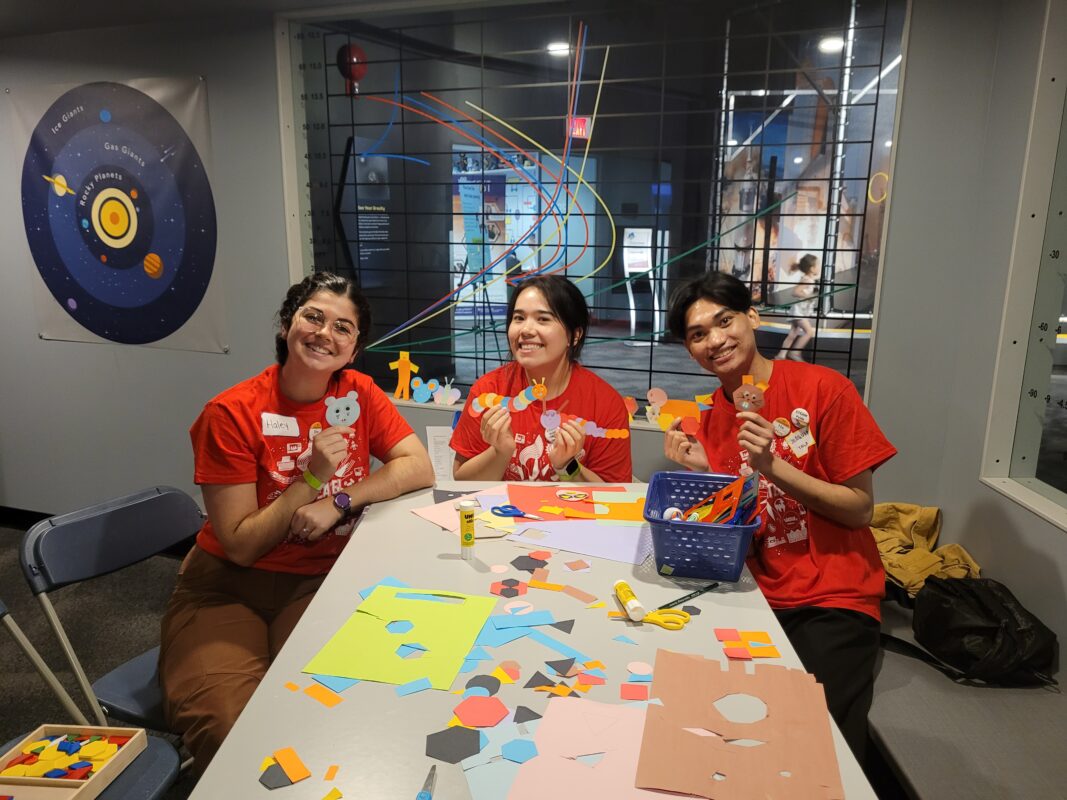
Get creative with energy!
Join researchers, students, and more as we explore energy in “Draw Our Energy Future” where you become part of the vision of our future and “Drawing STEAM” where we use shapes to create characters, sources of energy, and more. Join us at Future Energy Systems’ Energy Adventure at TELUS World of Science – Edmonton on May 11, 2024, 11am-3pm.
Future Energy Systems is a research program at the University of Alberta. It was launched in 2016 with $75 million from the Government of Canada’s Canada First Research Excellence fund, to help Canada transition to a low net-carbon energy economy.
We focus on multidisciplinary research that develops the energy technologies of the near future, integrates them into today’s infrastructure, and examines possible consequences for our society, economy, and environment. We also contribute to the development of solutions for challenges presented by current energy systems.
Connect with Future Energy Systems on our social media, our Learning Page (full of resources of teachers, parents and kids) and our YouTube Channel.

Explore Your Energy Future!!
Energy. Climate change. The economy and environment. The future. All topics of concern, and all topics that Future Energy Systems (FES) is addressing through research, innovation, and teaching. Focused on helping Canada transition to a low net-carbon energy economy, FES is a research program at the University of Alberta with over 100 projects and over 900 researchers.
Now it is your turn to explore energy through a series of experiments you can try yourself, opportunities to test your knowledge and the chance to meet some of FES’s researchers and visit their labs.
Explore below:
- Electricity, especially static electricity
- Circuits
- Renewable and non-renewable energy
- Stirling engines and geothermal energy
- Water filter
- Tree rings
- Land reclamation
- Sustainability
This Site's Science Chase Resources:
Electricity with Future Energy Systems

One step for exploring energy is understanding what is electricity. We all use electricity everyday – from turning on our lights in the morning to the computer you are using for the Science Chase.
In this video, join Leslie Guo as she explores electricity. You can try the experiments yourself with some simple materials you may have at home or just watch along as we explore atoms, electrons, electricity and especially static electricity. You can also download the instructions here (https://www.futureenergysystems.ca/public/download/files/117799).
Build a Circuit with Future Energy Systems

We all know that electricity is important in our lives, from charging our phones to flipping on the lights. This is all made possible by electrical circuits.
Remember electricity is a form of energy that involves the flow of electrons and this free movement of electrons is an electrical current. A circuit is a pathway for electrons to flow continuously. A circuit can be closed or open, but only when it’s closed can the electrical current flow. When it is open, there is a break somewhere in the circuit – this is useful because we want to be able to turn off the flow of electrons when we don’t need it.
A simple circuit has 4 parts:
- Power source – ie battery
- Conductors – i.e. wires that the electrons flow along
- Load – ie light or buzzer
- Switch – opens or closes the circuit
You can build your own circuit with a few simple materials at home.
Renewable Or Non-Renewable Energy, Test Your Knowledge with Future Energy Systems

The energy that we use can be produced using renewable or non-renewable sources. But what does that mean? And which energy sources are which? Join Future Energy Systems Outreach Coordinator, Valerie Miller, to explore the different sources of energy and determine which are renewable or non-renewable.
According to the Canada’s Energy Future 2020 report, in 2018 – electricity was generated from the following sources in Alberta and Canada.
| Energy Generation By Source | Alberta (%) | Canada (%) |
| Oil and diesel | 0.1 | 0.7 |
| Natural gas | 48.7 | 11.0 |
| Coal | 42.1 | 8.8 |
| Nuclear | 0.0 | 15.9 |
| Solar | 0.1 | 0.5 |
| Biomass/Geothermal | 1.7 | 1.5 |
| Wind | 4.9 | 5.3 |
| Hydro/wave/tidal | 2.4 | 63.9 |
Stirling Engines and Geothermal Energy with Future Energy Systems

How do we make electricity? We explored many ways in “Renewable Or Non-Renewable Energy, Test Your Knowledge”. In this activity, it is time to go inside a Future Energy Systems lab and see how we can make electricity using heat. Join Calynn Stumpf, MSc, in his lab to explore the turning, pumping, moving world of Stirling Engines and the potential of this early technology to generate energy in the future.
According to a variety of sources, the USA produces the highest amount of electricity from geothermal energy (known as geothermal power) followed by Indonesia. Learn more here (https://rb.gy/coygnt, https://rb.gy/w1wfum).
Dirty To Clean, Build Your Own Water Filter with Future Energy Systems
Water – it is all around us and it is essential for life. Yet so many human activities can pollute water making it unusable for us and unsafe for the environment. Join Sushmitha Thirumalaivasan, a PhD candidate in the Faculty of Engineering, as she shares her research on bioremediation of tailings ponds and teaches us how to make a water filter at home.
Tree Rings with Future Energy Systems

Join Autumn Watkinson, PhD, Postdoctoral Teaching and Research Fellow at the University of British Columbia, and Valerie Miller, PhD, Future Energy Systems’ Outreach Coordinator, explore tree rings and how they can tell us stories of the past. Then join Autumn and Valerie to create a tree ring of your own life in this easy to do craft.
Alternative video option – Grade 3 and under – https://youtu.be/xnzfvfPrFOY
Land Reclamation with Future Energy Systems
Whether it’s by extracting fossil fuels, mining materials for renewable energy technology, or building renewable energy installations, many of our energy activities can have an impact on the environment. This is why we need land reclamation.
Land reclamation is the process of taking disturbed or damaged land and returning it to its past condition or making a different landscape, essentially trying to heal the land. One important part of this is revegetation – bringing plants back – and to do that, we need to learn about plants.
Become A Sustainability Expert with Future Energy Systems
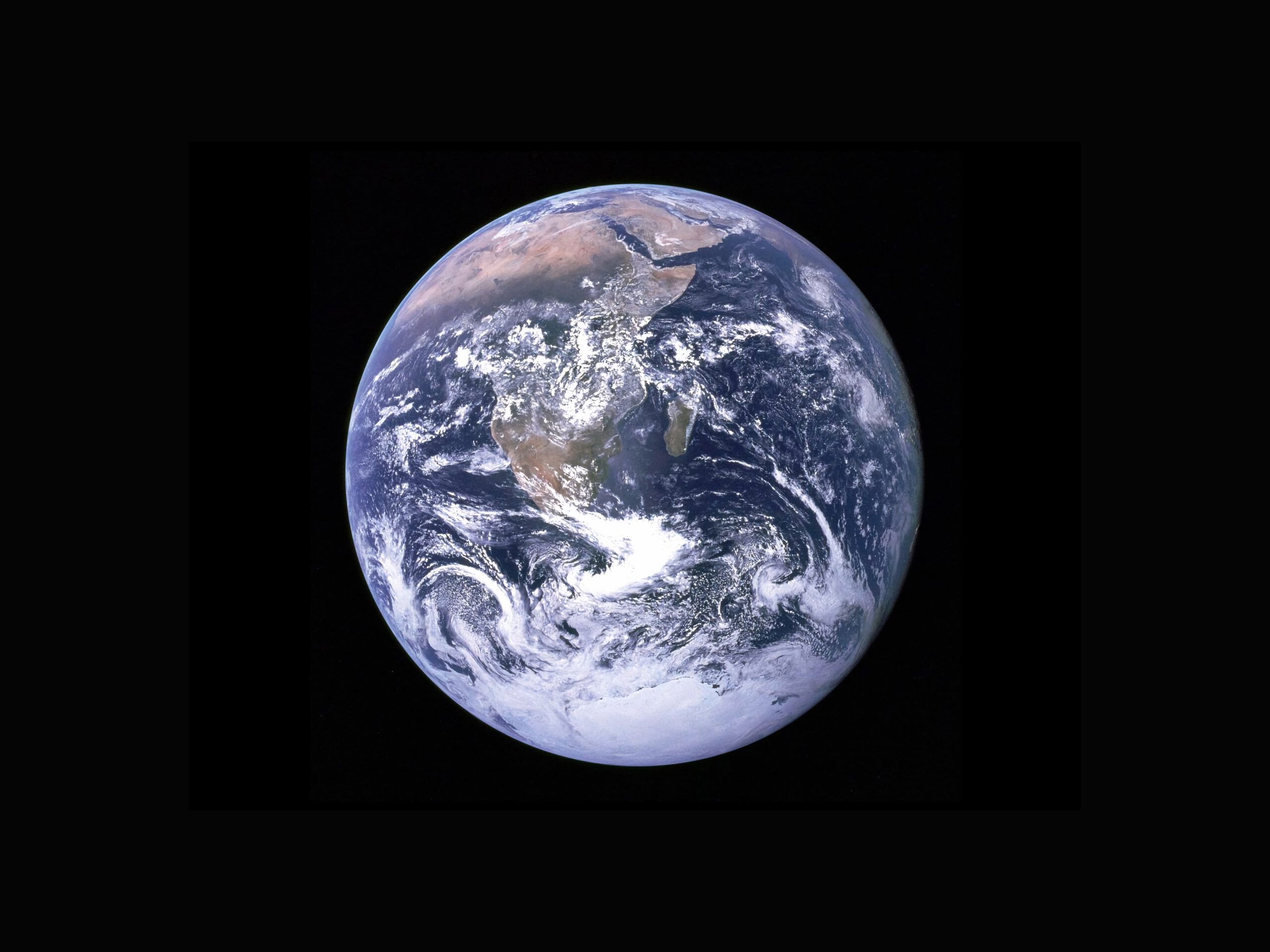
Another way to make a difference for our environment is to be more sustainable. Sustainability means that when we use resources, we are making sure that there is enough for everyone else to use, today and in the future. When you consider how much energy you use everyday, can you find ways to reduce it?
Join members of the University of Alberta’s Sustain SU group to explore how household tasks can be made more sustainable and find new things to try in your daily life.

